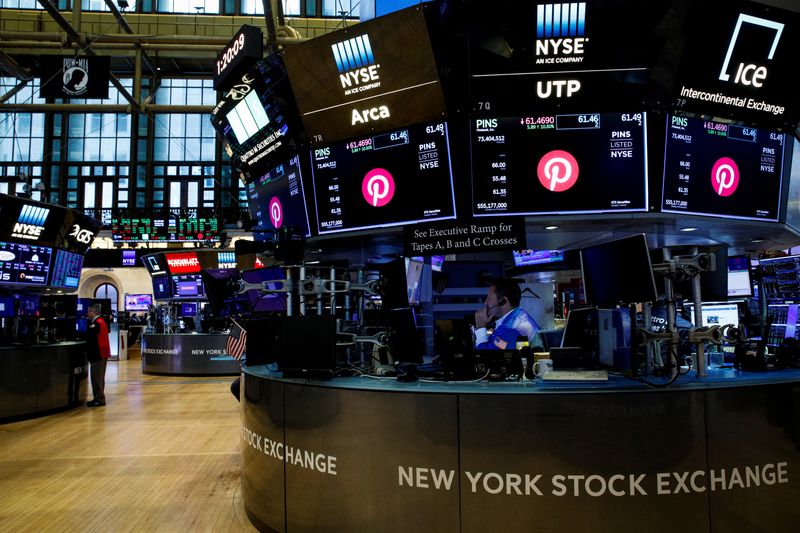
Pinterest plunges as gloomy forecast dampens revenue rebound hopes
By Deborah Mary Sophia
(Reuters) -Pinterest shares tumbled nearly 10% on Wednesday after a muted third-quarter outlook dashed expectations for a stabilization in its revenues, as heightened competition in the digital advertising space hurt the company despite broad-based recovery in the sector.
The photo-sharing platform on Tuesday projected current-quarter revenue below analysts’ estimates, as it struggles to keep up with bigger rivals including Meta’s Instagram and Facebook (NASDAQ:META) and Alphabet (NASDAQ:GOOGL).
The digital advertising market is bouncing back from a slump seen in 2022 and early 2023, but pockets of weakness are eating into Pinterest (NYSE:PINS)’s growth.
California-based Pinterest flagged material weakness in demand from advertisers in the consumer goods space, particularly food and beverage companies, which offset strength in ad spend in the technology and financial services sectors.
“The optics of a lighter (third quarter) guide will not help recently growing ad fears, and some will be concerned that food & beverage pressure — which has been isolated — could spread to other verticals with a potentially softer consumer,” J.P. Morgan analyst Doug Anmuth said.
Pinterest’s outlook could spell trouble for other smaller ad players such as Snapchat owner Snap and ad tech firm Trade Desk (NASDAQ:TTD), analysts said, noting 18% of the gross spend at Trade Desk last year came from food and beverage firms.
“Slowing in ad spend and shifts toward promotions or discounts from (food and beverage) companies could cause some weakness in the digital ad markets…Ad platforms with fewer advertisers, more branded exposure are more at risk. Snap seems most at risk,” said Morgan Stanley’s Brian Nowak.
Shares of Snap and Trade Desk were each up nearly 1% on Wednesday after dipping about 2% premarket. Pinterest looked set to lose about $2.5 billion in market value, with at least 13 brokerages cutting their price targets.
Pinterest could take yet another hit from the lack of political ads on its platform, unlike Meta and Alphabet which are set to benefit from political advertising ahead of the U.S. elections. RBC analysts noted it could be a “few hundred” basis points of a headwind.

